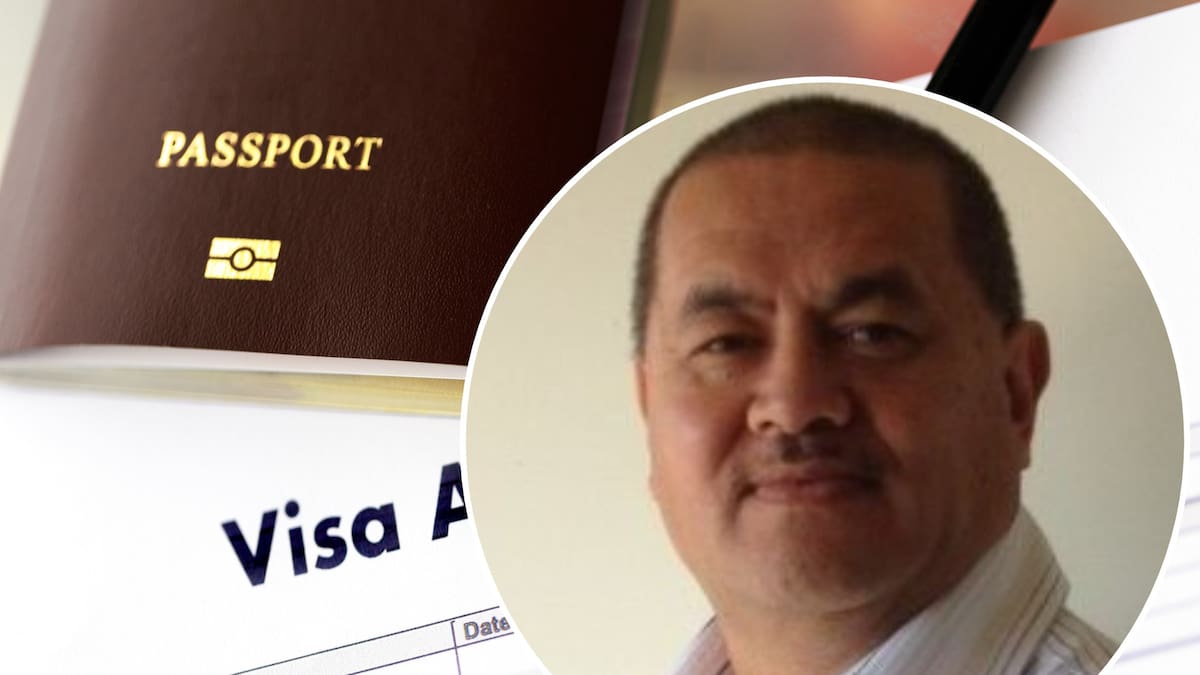The Immigration Advisers Complaints and Disciplinary Tribunal said in a decision this month that Wharekura was asked three times by the man to remove his partner from his application, but he didn’t, resulting in a “catastrophic outcome”.
The man, whose name was suppressed, was forced to leave in August last year or risk deportation when his work visa expired.
He lost a stable job, was forced to sell his assets and then incurred relocation costs back to the Philippines.
Once there, he found himself unemployed, the tribunal said.
Director at NZ Immigration Support Services, Honey Rasalan, who represented the man in an official complaint with the Immigration Advisers Authority about Philip Wharekura’s failure to follow instructions.
Now, following a complaint about Wharekura and an appeal against the decision to decline residency, the exiled worker has returned to pick up the life he left – this time, with his partner.
Immigration consultant Honey Rasalan represented the man in an official complaint with the Immigration Advisers Authority about Wharekura’s failure to follow instructions.
Rasalan, a director at NZ Immigration Support Services, told NZME the man had returned in May, after a “panic-stricken” few months and a successful appeal to the independent Immigration and Protection Tribunal.
“He had given up, but I egged him on,” Rasalan said.
Not only was his residency granted on appeal, but his partner was then included when it was proved they were in an established relationship, she said.
Immigration NZ ‘not blameless’
Wharekura is the director of Rotorua-based NZ Educational and Training Services.
He was engaged in October 2021 to handle the man’s application, after Immigration New Zealand (INZ) opened a new, one-off residence category for those already in the country who met certain criteria.
Wharekura initially blamed INZ for the declined residence visa and said the agency was wrong in making that decision.
The tribunal found that while INZ was not blameless, the result was largely because of Wharekura’s “atrociously poor advice”.
It said Wharekura was “wholly liable” because he did not remove the partner as instructed.
Tribunal chairman David Plunkett said if Wharekura had followed the simple and clear instruction, it was likely the man would have been granted residence at the time.
Responsibility also rested with INZ’s “misapplication of policy”, he said.
Philip Wharekura admitted he had made an error and now carried the responsibility for it.
INZ’s deputy chief operating officer, Jeannie Melville, told NZME the agency acknowledged the tribunal’s comment that residence should have been granted to the principal applicant, and that its misapplication of policy led to an incorrect decision.
“We apologise for the error and distress this may have caused. Clear guidance already exists for staff, and we will be reminding them of the policies to prevent similar errors in future.”
Melville said in this case, the individual was able to appeal the decision and was subsequently granted residence.
Censured and ordered to pay compensation
It was not the first time Wharekura has come to the attention of authorities.
A tribunal registrar noted it was his second appearance before the tribunal, which had since upheld a third complaint.
NZME reported in 2019 his licence was suspended after he falsified emails from the Associate Immigration Minister.
In the current matter he was censured and ordered to pay the complainant $8240 in compensation for 12 breaches of the Licensed Immigration Advisers Code of Conduct.
The complainant sought $58,212 in compensation and losses.
Wharekura later acknowledged his mistakes and has since made considerable effort to improve his client and file management practices, Plunkett said.
Wharekura told NZME he had made an error and now carried the responsibility for it.
He said the sanctions were fair.
“It reinforces the necessity for me to install more robust administrative systems,” he said.
Chain of events leading to ‘catastrophe’
After Wharekura had failed to remove the man’s partner from the application, INZ wrote and asked if she met the relevant criteria, following up a couple of weeks later with a reminder.
Wharekura filed further evidence in support of the partnership in July 2023. INZ sought more information about the relationship in August and again in November.
A visa officer also phoned but Wharekura did not reply.
He was sent an email in January last year, offering a final opportunity to send the requested information.
Wharekura then uploaded a “certificate” from the Philippines without any communication or explanation, prompting INZ to ask for more evidence.
He then wrote to INZ with some details of the extent to which the couple had lived together.
Plunkett said it was to Wharekura’s credit that he ultimately acknowledged his wrongdoing and had made considerable effort to improve his client and file management practises.
They included new systems to monitor and prompt better communication with his clients and INZ.
A “significantly reduced workload” was also likely to improve record-keeping and communication, Plunkett said.
Wharekura said he had reduced the volume of work he handled to about a third of that done in the previous two years.
Plunkett said when deciding to censure him instead of suspend or cancel his licence, because of Wharekura’s responsible approach to the complaint and the changes in his practice already initiated, the public did not need protection, and he would not be prevented from practising.
Tracy Neal is a Nelson-based Open Justice reporter at NZME. She was previously RNZ’s regional reporter in Nelson-Marlborough and has covered general news, including court and local government for the Nelson Mail.

